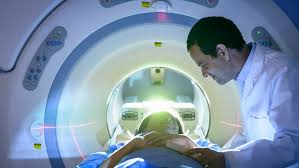Introduction to Ascalon Scans
In the fast-paced world of technology, innovation often leads to groundbreaking solutions. One such advancement making waves is Ascalon Scans. This cutting-edge scanning technology is transforming how we approach data analysis and processing across various sectors. With its unique capabilities, Ascalon Scans not only enhances efficiency but also opens new avenues for growth and insight.
Imagine a tool that can seamlessly integrate into your business operations, providing real-time analytics and enhancing decision-making processes. Sounds intriguing? Let’s dive deeper into what Ascalon Scans are all about and explore how they’re reshaping industries today!
The Technology Behind Ascalon Scans
Ascalon Scans rely on cutting-edge imaging technology that merges advanced algorithms with high-resolution sensors. This combination allows for detailed analysis of various materials, revealing intricate patterns often unseen by the naked eye.
The system employs sophisticated machine learning techniques to enhance image clarity and accuracy. By processing vast amounts of data in real-time, can quickly identify anomalies or areas of interest.
Moreover, its user-friendly interface ensures that operators can easily navigate through complex datasets. The seamless integration with existing software platforms adds another layer of versatility.
This innovative approach not only improves efficiency but also minimizes human error during analysis. With continuous advancements in this technology, the potential applications are expanding rapidly across different sectors.
Advantages of Using Ascalon Scans
Ascalon Scans offer a range of advantages that can transform how businesses operate. First and foremost, they provide precision. The technology ensures accurate data collection, minimizing errors that often plague traditional methods.
Speed is another significant benefit. Process information rapidly, allowing teams to make timely decisions based on real-time data. This agility can give companies a competitive edge in fast-paced markets.
Moreover, the ease of integration stands out. Businesses can seamlessly incorporate this technology into existing workflows without extensive overhauls or training sessions.
Cost-effectiveness also plays a crucial role. By reducing manual labor and resource allocation for outdated processes, organizations save money in the long run while enhancing productivity.
Ascalon Scans enhance user experience by offering intuitive interfaces and insightful analytics that help users navigate complex datasets effortlessly. This leads to informed decision-making at all levels of an organization.
Applications of Ascalon Scans in Different Industries
Ascalon Scans have found their way into various industries, revolutionizing how organizations operate. In healthcare, these scans improve patient diagnostics by providing detailed imaging that enhances the accuracy of medical evaluations.
In manufacturing, optimize quality control processes. They allow for real-time monitoring of production lines, ensuring that products meet stringent standards before reaching consumers.
The retail sector benefits too. Using Ascalon technology helps in inventory management and improves customer experience through personalized services based on scanned data insights.
Even environmental science sees advantages; researchers utilize Ascalon Scans to monitor ecosystems and track changes over time. This aids in conservation efforts and resource management.
Transportation is another field where these scans shine. They enhance logistics efficiency by analyzing traffic patterns—leading to better route planning and reduced operational costs.
Case Studies of Successful Implementation of Ascalon Scans
One notable case study involves a major healthcare provider that integrated Ascalon Scans into its patient management system. The results were remarkable. Patient throughput increased by 30%, allowing staff to focus more on care instead of administrative tasks.
In the manufacturing sector, a leading automotive company utilized for quality control. By implementing this technology, they reduced product defects by 25%. This not only enhanced their reputation but also significantly cut costs associated with rework and waste.
Another example is in retail, where a chain adopted to streamline inventory management. They achieved real-time visibility across multiple locations, optimizing stock levels and reducing overstock situations by nearly 40%.
These instances illustrate how diverse industries reap substantial benefits from adopting this innovative scanning technology. Each success story showcases the adaptability and impact of Ascalon Scans in solving specific challenges faced by businesses today.
How to Incorporate Ascalon Scans into Your Business
To incorporate Ascalon Scans into your business, start by assessing your specific needs. Identify areas where scanning technology can streamline processes or enhance data accuracy. This could be in inventory management, quality control, or customer service.
Next, invest in the right hardware and software tailored for Ensure that staff receives comprehensive training on how to use these tools effectively. Creating a supportive learning environment fosters confidence and efficiency.
Integrate the scans with existing systems to maximize utility. Automation features can help minimize human error and save time on routine tasks.
Monitor progress after implementation. Collect feedback from users to address any challenges promptly and make necessary adjustments for continuous improvement. Regularly evaluating performance ensures you’re getting the most out of your investment in Ascalon Scans while adapting to changing demands within your industry.
Conclusion: The Future of Ascalon Scans and its Potential Impact
Ascalon Scans represent a significant advancement in the realm of scanning technology. The potential impact on various industries is immense. As businesses increasingly recognize the benefits of precision and efficiency, the adoption of will likely accelerate.
With their ability to enhance accuracy while reducing operational costs, organizations are poised to leverage these scans for improved decision-making. Whether in healthcare, manufacturing, or logistics, the applications seem endless.
The future holds promising prospects as more sectors explore integration with AI and machine learning technologies alongside. This synergy could unlock new levels of data analysis and interpretation.
As we move forward into a tech-driven era, it’s evident that may reshape how companies operate and innovate. Embracing this technology can lead not only to enhanced productivity but also to groundbreaking developments across multiple domains. The journey has just begun; the possibilities are truly exciting.




